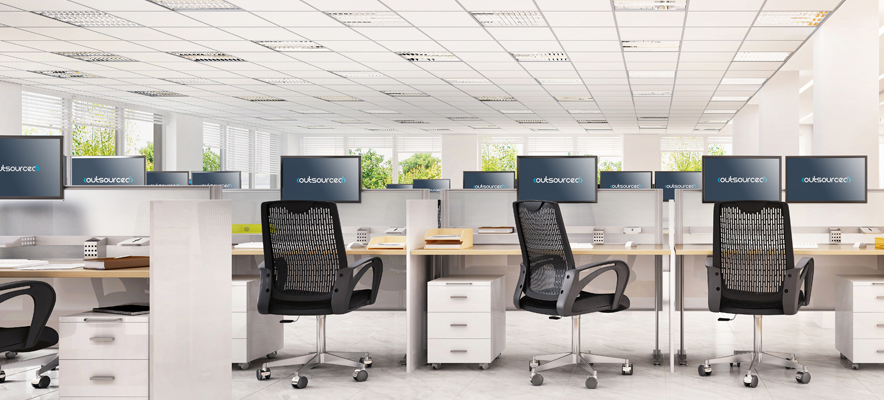Remote Staff Philippines: Here’s Everything You Need To Know

If you want to grow and expand your business, then hiring remote staff in the Philippines might be your best solution. This is a strategy that’s already used by a large number of successful companies around the world, regardless of size. It’s popular because it helps to increase efficiency and productivity, whilst streamlining operational costs. So have you ever considered this type of business model for your company?
What Is Remote Staffing?
Companies worldwide have quickly realised the benefits of Remote Staffing Philippines, which basically consists of employing people who work outside your local office to fulfill specific roles for your company. You can have just one or two employees working remotely or an entire team of specialists who supplement your in-house staff.
Whilst the primary reason for hiring remote staff in the Philippines is to cut costs, a closely run second benefit is the fact that you have access to a massive pool of talented professionals. It’s the perfect solution for creating teams of specialists to work on your projects without all the capital investment required for additional resources, office spaces, IT equipment and so on. As mentioned earlier, it’s a very successful business model for many successful companies to hire remote staff in the Philippines.
Remote staffing is more than just hiring someone to enter data or answer phones, it’s about having access to professionals who can help your business grow and expand. If you need a full time, dedicated specialist on your team, the easiest way to find them is by hiring remote staff in the Philippines.
Whether you want someone experienced in web development, apps, tech support, network engineering, programming or QA testing, you can find them in the Philippines. Remote staffing also includes accountants, business analysts, geologists, paralegals, graphic designers, marketing analysts and so on. Whatever role you need filled for your company, you can hire them via Outsourced – the leading business process outsourcing company in the Philippines.
Benefits Of Remote Staffing In The Philippines

Two of the biggest limitations when you are trying to grow and expand a business are operational costs and finding the right staff. If you outsource to the Philippines however, you can solve both of these challenges at the same time. That’s why an increasing number of international businesses outsource many of their labour intensive tasks, as well as some of their more critical jobs to the Philippines.
Reduced expenses have always been the most popular Remote Staff advantage. Salaries in the Philippines are a fraction of those in the Western world, with the daily minimum wage set around $8 per day. By hiring remote staff in the Philippines via Outsourced, international companies have been saving hundreds of thousands per year when compared to hiring locally. Savings can be up to 75%.
The cost saving is obviously important, though we don’t like to focus on it solely. Our tagline is “Quality Assured” so we also like to highlight the other benefits of Philippines Remote Staff with Outsourced, such as our Filipino professionals are, by nature, very hard workers. They take great pride in their work and focus on quality assurance. Or Filipino Remote Staff also come from a service-oriented culture that produces extremely polite employees with world-class customer service.
To help you decide whether hiring remote staff in the Philippines and outsourcing some of your tasks is a suitable strategy for your business, here are seven benefits of this business model.
7 Reasons Why Outsourcing To The Philippines Is A Good Business Model
1. Provide a 24/7 service to your customers
If you hire from a Philippines company that specialises in outsourcing, you can leverage a workforce that is extremely flexible in their operating hours. Evening shifts, night shifts, weekends and holidays are all covered, allowing your business to offer a 24/7 service to your clients.
2. Increase your workforce with fluent English speakers
All remote staff hired by companies that outsource to Philippines’ businesses speak fluent English, as this is the official language taught in our schools. The Philippines is actually the third largest English speaking country in the world, so you won’t have any problems finding staff who can communicate flawlessly with your customers and employees.
3. Enjoy excellent work ethics
When you outsource to the Philippines, you don’t have to worry about the work ethics of your remote staff. That’s because Integrity, respect and honour are values that make Philippines workers stand out from the crowd, and it’s why this type of business model is so popular here.
4. Hire specialised staff without in-house responsibilities
Philippines outsourcing companies not only provide remote staff for labour intensive tasks, but they also offer specialised staff as well. Whether you want a geologist, web developer or programmer, network engineer, business analyst or AI developer, outsourcing companies in the Philippines have a full range of qualified and experienced staff.
5. Reduce your operational costs
If you outsource to the Philippines, you will find that your operational costs are a fraction of what they would be if you hired your own in-house staff. This is because Philippines outsourcing companies provide all the infrastructure needed by the remote staff to perform their tasks, saving your company a significant amount of money.
6. Increase or decrease your staffing numbers quickly
Hiring and training new employees for one project or for a short period of time can be a big drain on your resources. When you outsource to the Philippines however, you can hire as many staff as you need for as long as you need. This let’s you alter the size of your workforce to match your business needs, saving you both time and money.
7. Free up your in-house staff to focus on your core business goals
Your business can make better use of senior in-house staff by freeing them from some of the more mundane, repetitive and labour intensive tasks that often come with the job. Outsourced remote workers (personal assistants, secretaries, project managers and so on), can take on these tasks, leaving your senior staff to focus on your core business goals.
Managing Your Remote Staff in the Philippines

In recent years we’ve seen more and more employees working from home, creating a mad dash by employers to try and manage their newly remote staff effectively. However, this isn’t a really big problem, because managing offshore staff has become an everyday occurrence for many companies around the world.
That’s because they hire their remote staff via the Outsourced team in the Philippines and we manage all the recruitment and onboarding processes for them. It’s a well-proven and very cost effective strategy that provides access to a large pool of highly talented, experienced and qualified professionals in the Philippines. These companies then go on to manage their remote based employees very well and with little difficulty.
So if this is your first time managing remote staff, what can you learn from employers who have been doing the same job for many years? In other words, what should you and shouldn’t you do? These tips will help you make the most of your new team:
Provide clear job descriptions
Since most Filipino workers go above and beyond for their employers, it’s important to provide clear role descriptions. Otherwise, you will quickly find that some tasks are frequently replicated by your enthusiastic remote staff. Philippines companies understand this problem and always ensure that team members understand their individual roles.
Provide clear instructions
Since most of your communications will be via chat, emails or zoom, it’s important to ensure that all work related instructions are given clearly. Most Filipinos speak fluent English, you just need to delegate appropriately and encourage them to ask questions if they are unsure of their instructions.
Provide clear working hours
Philippines remote staffing is popular because many Filipino employees work night shifts and weekends to accommodate their offshore employer’s needs. It is important, however, to ensure that their work hours are clearly specified at the time of job offer.
Always pay on time
Making sure that your remote staff are paid on time in the Philippines is an essential part of doing business. Your Filipino workers will likely be relying on your wages to support their extended families and it goes against their culture to ask for their wages. Instead, they will likely move to another employer who pays on time. That is another benefit of working with a remote staffing provider like Outsourced, since we will take care of all the HR and payroll to ensure compliance and no delays with local transfers.
Don’t micromanage
Every manager knows that micromanaging reduces productivity and frustrates and annoys their staff. So just because your employees are remotely based, doesn’t mean that you should start looking over their shoulder all the time. Clear communications, goal setting and regular check-ins are usually all that’s required.
Don’t avoid regular communication
Whilst you don’t want to micromanage, you also don’t want to ignore your offshore staff, because they need an open line of communication. This may be via emails, texts, video chats or phone calls and the best way to get the right balance with your remote staff is to ask them how they like to communicate.
Don’t ignore feedback
The value of feedback from your employees cannot be overstated, so if feedback is offered or you ask for an opinion, don’t ignore it. This also applies to your remote based staff who appreciate being part of a team and knowing that their opinion also counts.
Don’t isolate remote staff
Some remote staff can feel isolated from in-house staff who are working at the company’s base of operations or other satellite offices. Whilst we provide a very family orientated atmosphere for your offshore employees who work locally at our state-of-the-art facilities in the Philippines, they can still feel isolated from the in-house employees. Opportunities to reduce this isolation include online getting-to-know-you chats and online coffee mornings.
Do track their progress
Performance monitoring helps to avoid bottlenecks and keeps everyone on track to achieve deadlines. This can be as simple as checking in on a regular basis, asking how remote staff are progressing and whether certain goals have been met. For significant performance issues, however, you can use an app, such as Hubstaff, which tracks time, URLS and even offers screenshots of their work.
Do practice remote stand-ups
Too many meetings can interrupt an employee’s work and reduce productivity, so whilst they are needed, we suggest that you practice remote stand-ups. These are meetings that are short and to the point and take place without tables and chairs. It’s perfect for virtual meetings, you just need to make it work with different time zones.
Do provide a virtual pat on the back
Since some offshore staff can feel isolated working away from the in-house team, make sure to give a virtual pat on the back when it’s due and share successes across the team. Posting a ‘thank-you’ or celebratory video online let’s everyone join in the celebrations and acknowledges everyone’s input to a project.
What outsourcing solution is best for you? We provide both full time remote home-based staff and state-of-the-art office-based teams:
Hire Home-Based Remote Staff in the Philippines

We provide Philippines remote staffing services within: Information Technology (I.T.), Contact Center, Professional Services, Creative, Administration, Marketing, Education, Finance, Healthcare and Engineering.
Hire Office-Based Remote Teams in Manila, Philippines:

With outsourced you can scale your organisation quickly, easily and cost effectively with dedicated remote staff. Our goal is to find and place exceptional remote staff that will stay with you for years to come and who will constantly exceed your expectations.
The process is simple:
- You provide us with a job description (just tell us what you need)
- We recruit talented professionals (only the best. quality assured)
- Your dedicated staff report to you daily (full time home-based or office-based)
- We manage the operations (and ensure quality standards)
If you would like to learn more about Philippines Remote Staff simply contact us.
For help creating your team of remote staff in the Philippines, contact Outsourced today.











